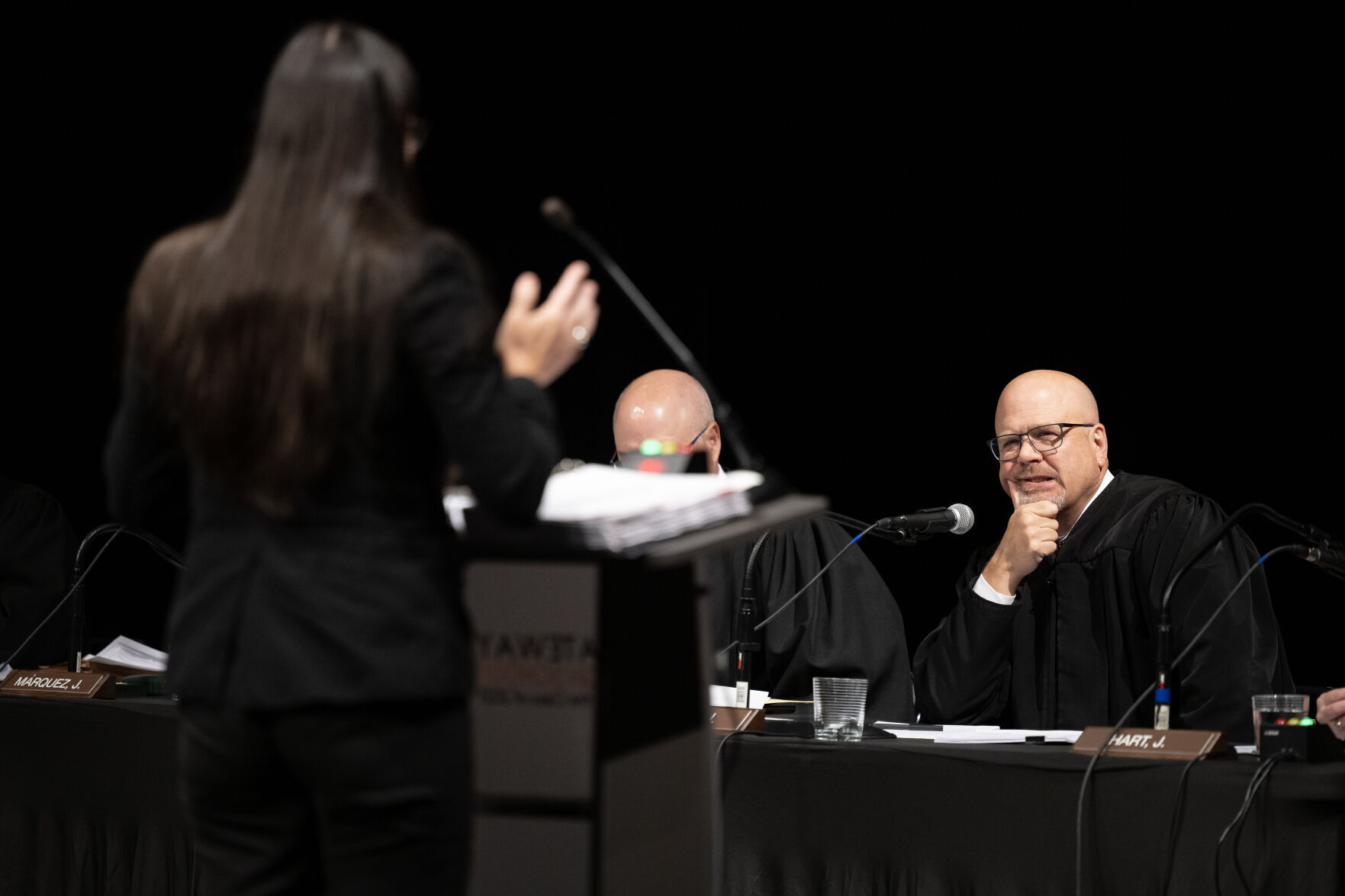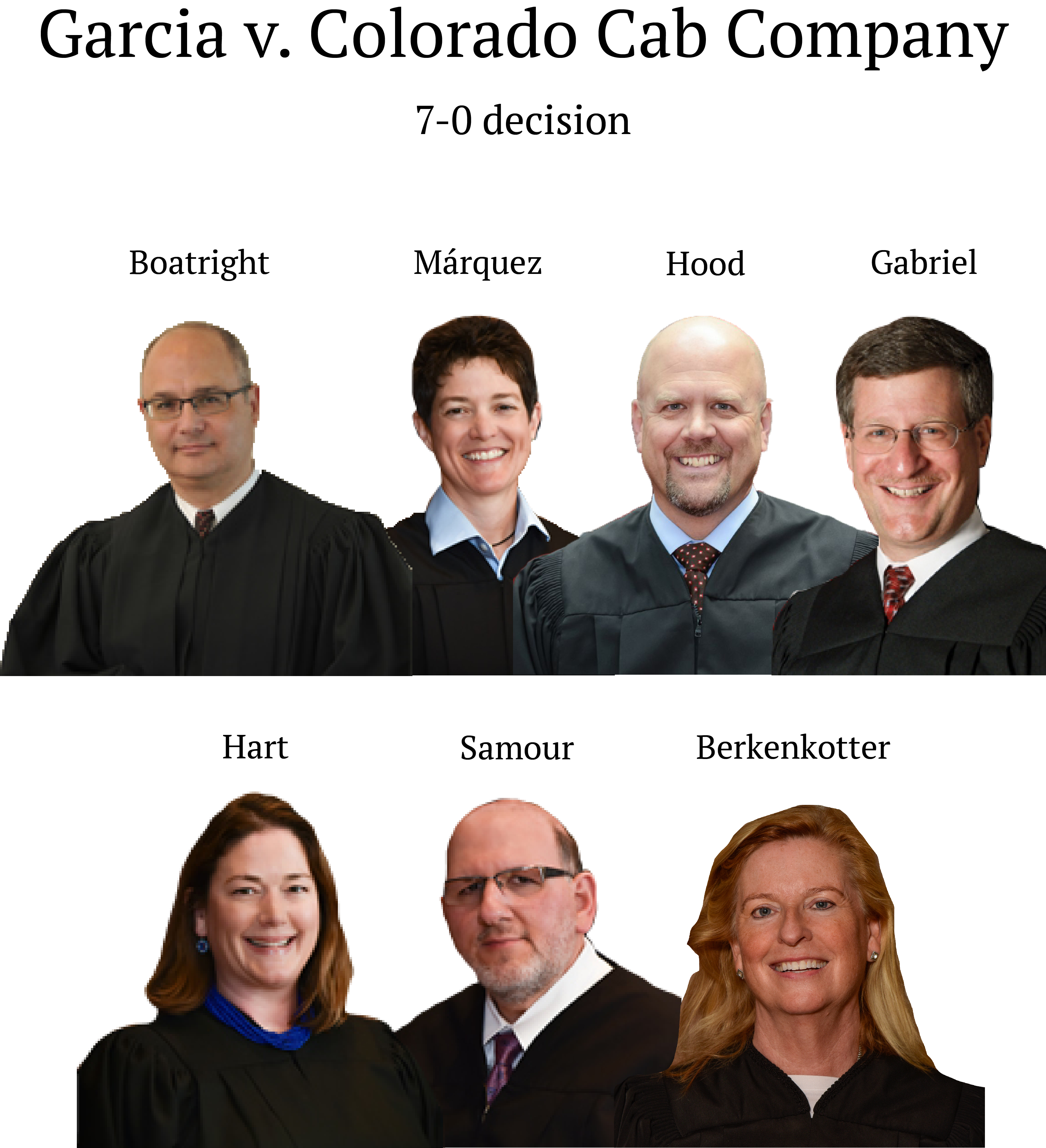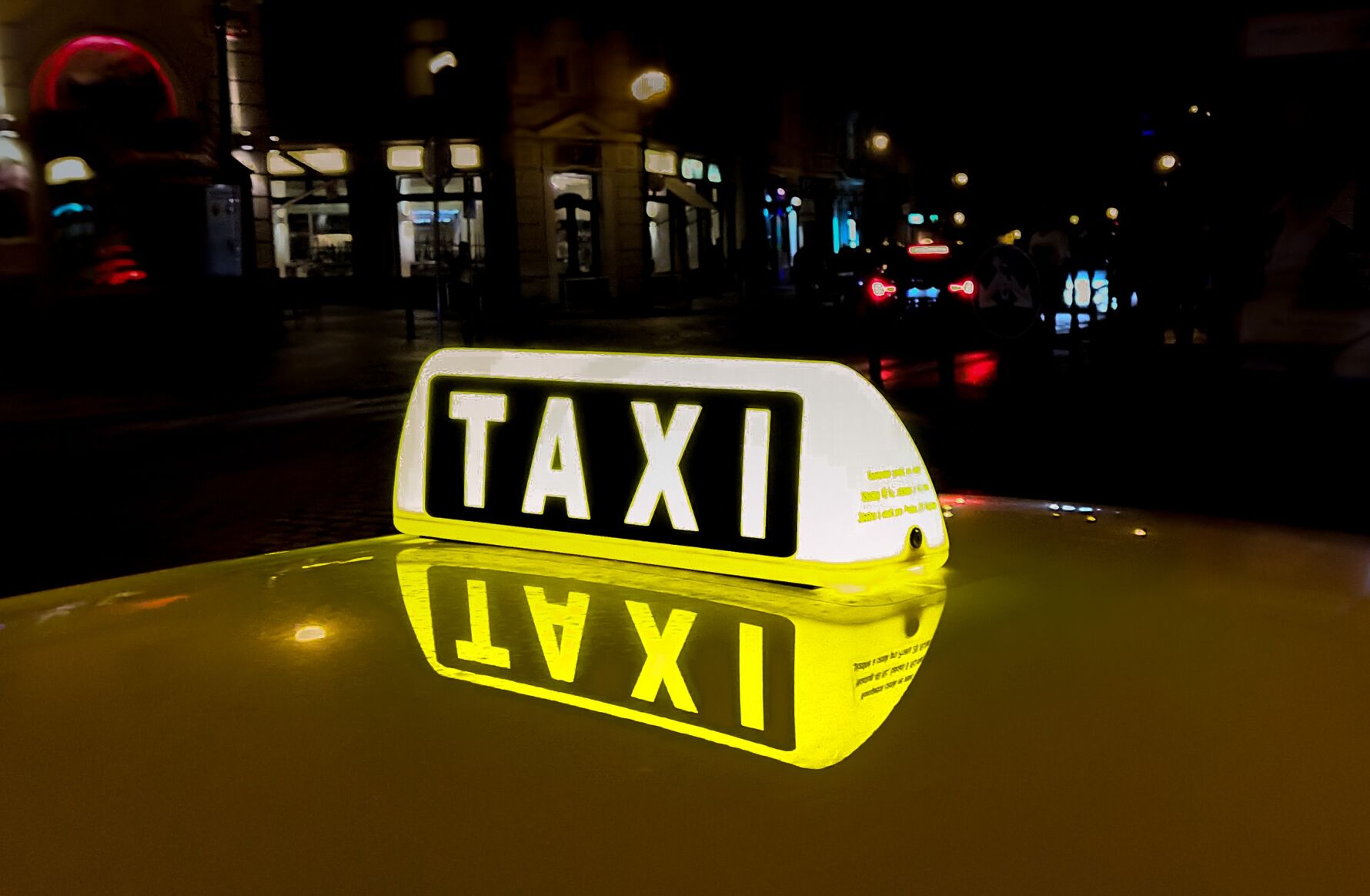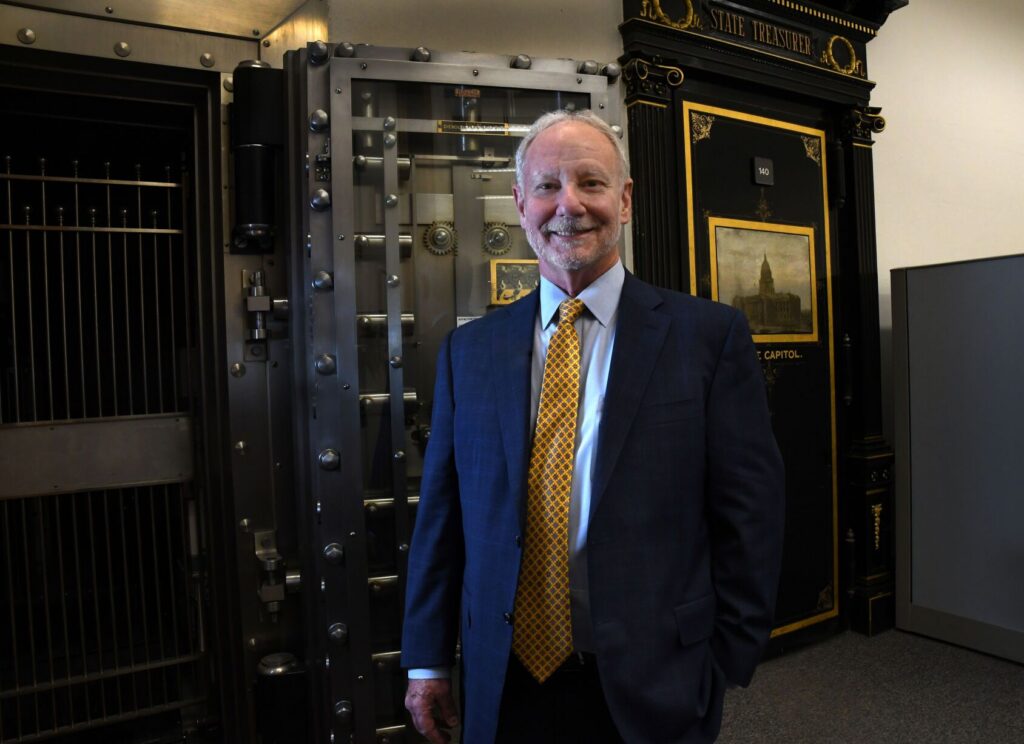Colorado Supreme Court reinstates $940,000 jury award to man run over during rescue attempt

The Colorado Supreme Court on Tuesday upheld a jury’s finding that a taxicab operator owed $940,000 to a man who intervened in the assault of a driver, only to see the enraged assailant steal the cab and run him over with it.
Previously, the state’s second-highest court disagreed that the act of stealing a taxi and running over a good Samaritan was a foreseeable consequence of Colorado Cab Company’s failure to protect its drivers against assault. In a divided ruling, it held the bulk of Jose Garcia’s injuries were not attributable to Colorado Cab.
The Supreme Court instead sided with Garcia’s jurors. Justice William W. Hood III wrote that the jury evidently viewed the conduct of the assailant, Curt Glinton, as an escalation of his original assault on the cab driver – and the Supreme Court did, too.
“While the precise way Glinton chose to lash out at Garcia here might seem bizarre,” Hood added, “it remains reasonably foreseeable that an intoxicated assailant could seize any weapon at hand to inflict harm on a rescuer who provoked the assailant’s drunken wrath.”

Lawyers for Colorado Cab did not immediately respond to a request for comment. Danny Foster, an attorney representing Garcia, was pleased with the result after years of appeals and multiple trips to the Supreme Court.
“We got very, very fortunate with our jury and the way the facts came out, and a very well-deserving man who was seriously injured just trying to help somebody and had his life basically ruined by these injuries,” Foster said. “He has been waiting for some justice for almost 10 years now.”
In 2014, Garcia came upon a cab stopped near 44th Avenue and Tejon Street in Denver. Glinton, the intoxicated passenger, was beating the taxi driver because he did not want to pay the $6.50 fare. Garcia told the men to stop fighting, prompting Glinton to begin assaulting Garcia.
Glinton then got into the cab, turned it around and ran over Garcia, dragging him. Although prosecutors charged Glinton with attempted murder, he pleaded guilty to assault and received eight years in prison.
Garcia, who suffered a traumatic brain injury, sued under the “rescue doctrine,” arguing Colorado Cab failed to install partitions and cameras in its vehicles to protect its workers, despite the known risk of assaults. Therefore, it was foreseeable the driver would need rescuing from a violent passenger.
Jurors agreed, concluding Garcia incurred $1.6 million in damages, with Glinton responsible for the majority. In total, Colorado Cab was liable for $940,825.
Although the Court of Appeals reversed the verdict, finding Garcia was not a rescuer because he “merely” told Glinton and the driver to stop fighting, the Supreme Court upheld Garcia’s status as a rescuer in 2020.

The case returned to the Court of Appeals, where a three-judge panel addressed a different question: Did Colorado Cab’s negligence cause the entirety of Garcia’s injuries? By 2-1, the panel said no.
“Glinton’s conduct in stealing the cab and using it as a weapon wasn’t within the scope of the risk that made Colorado Cab’s failure to install partitions and interior cameras (unreasonable) in the first place,” wrote Judge Jerry N. Jones.
Former Supreme Court Justice Alex J. Martinez, who sat on the panel at the chief justice’s assignment, disagreed. He suggested the attack was a “single, continuous response” from Glinton, culminating in Glinton’s use of the cab as a weapon. A reasonable jury, Martinez concluded, could see the entire episode as a foreseeable consequence of Colorado Cab’s failure to protect its driver.
“The whole thing is bound together by the same assailant’s attempt to harm the same victims,” Chip G. Schoneberger, an attorney for Garcia, told the Supreme Court during oral arguments this year.
E. Catlynne Shadakofsky, representing Colorado Cab, responded that attempting to rescue someone from a fistfight does not normally carry the risk of being run over with a car.
“Maybe the rescuer anticipates getting punched or stabbed,” she said. “That might be a reasonable escalation -“
“Why is it any more likely that you’d get stabbed than it is that someone in a cab would take that cab and run you over?” interjected Justice Melissa Hart.
In siding with Garcia, the Supreme Court acknowledged there are limits to what injuries are a foreseeable consequence of a good Samaritan’s intervention.
“So, if a rescuer is harmed during a rescue attempt in a way that is totally independent of and in no way a foreseeable result … like getting struck by lightning while trying to put out a house fire, the defendant generally won’t be liable for that harm,” wrote Hood in the Nov. 14 opinion.
While Glinton’s attack escalated in “unusual ways,” Hood concluded the jury acted reasonably when it held Colorado Cab liable for its role in Garcia’s injuries.
The case is Garcia v. Colorado Cab Company, LLC.














